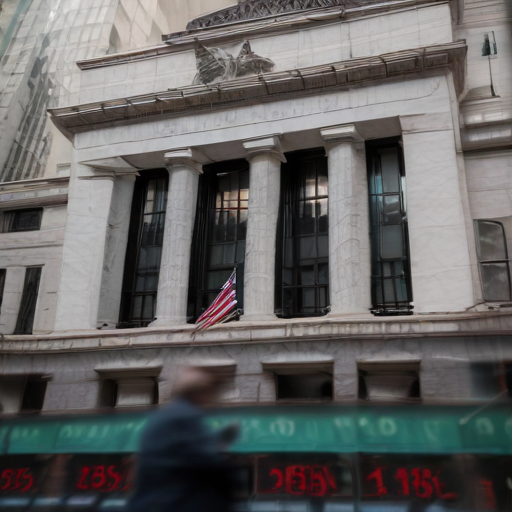U.S. stock markets faced a significant downturn as investors reacted to the Federal Reserve’s indication of fewer expected interest rate cuts in 2025 compared to previous projections. The S&P 500 experienced a sharp decline of 2.9%, nearing its largest loss for the year and moving further away from its all-time high reached several weeks ago. In tandem, the Dow Jones Industrial Average plummeted by over 1,123 points (2.6%), while the Nasdaq composite fell 3.6%.
This market reaction follows the Fed’s announcement that it has reduced its main interest rate for the third time in 2024, which began a significant decrease from a high point in September. The overarching question, however, revolves around how many more cuts the Fed may implement next year. The updated Fed projections suggest a median expectation of two further cuts in 2025, down from earlier expectations of four. Fed Chair Jerome Powell indicated that economic conditions and emerging uncertainties surrounding the upcoming presidential administration have influenced this more cautious approach.
The bond market was also affected as diminishing expectations for interest rate cuts led Treasury yields to rise, which added further pressure on stock prices. The yield on the 10-year Treasury climbed to 4.51%, while the two-year yield rose to 4.35%. Stocks that typically suffer from rising interest rates saw significant losses, particularly in the small-cap sector, with the Russell 2000 index dropping 4.4%.
Among individual stocks, General Mills fell 3.1% despite reporting stronger-than-expected quarterly profits, as its future profit forecasts were trimmed due to increased investment plans. Nvidia, a previously high-flying stock, also continued its downturn, losing 1.1% amid concerns over slowing growth. In contrast, Jabil led the market with a 7.3% increase after exceeding profit and revenue expectations and lifting its annual revenue forecast.
On the international front, the FTSE 100 in London managed a slight increase, supported by data showing a rise in inflation. Meanwhile, Japanese markets faced slight declines despite Nissan’s significant announcement of potential collaboration with Honda regarding electric vehicles.
This downturn, while challenging, may pave the way for a recalibration in the stock market, allowing for more sustainable growth that aligns with economic realities. The Fed’s careful approach to interest rates reflects a commitment to balance growth with managing inflation, ultimately reinforcing market stability in the long run.
In summary, this article highlights the current volatility in the U.S. stock market driven by shifts in Federal Reserve policy and economic forecasts, illustrating the ongoing impact of monetary policy on investor sentiment and market performance.
